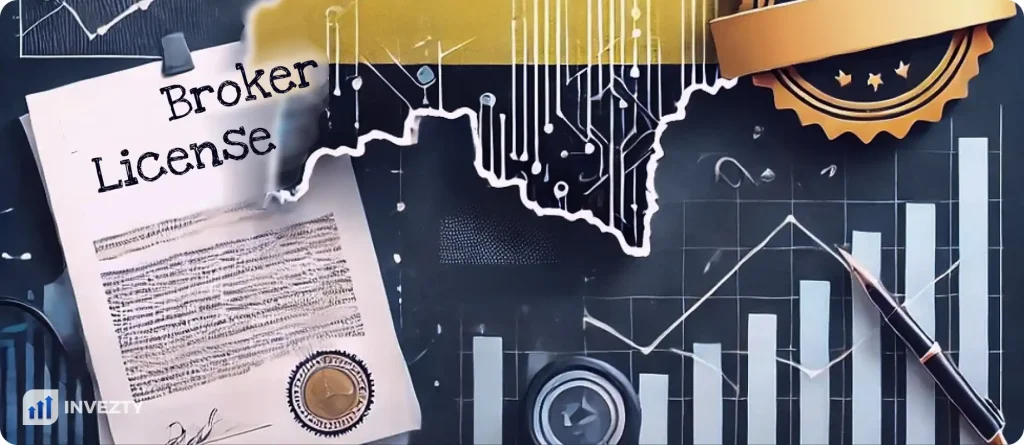Thadeus Geodfrey is a leading voice in the financial industry. You’ll appreciate the expert ease with which he does this. He deciphers the intricate link between emotions and behavior in trading and investment. With extensive experience as a senior trading writer, Thadeus imparts his knowledge and confidence to guide your trading boat. He’ll make you conquer your fears, break barriers, and capitalize on every potential opportunity. Follow his pieces and develop your knack for trading.
We may receive compensation from our partners for placement of their products or services, which helps to maintain our site. We may also receive compensation if you click on certain links posted on our site. While compensation arrangements may affect the order, position or placement of product information, it doesn’t influence our assessment of those products.
Planning on starting a brokerage business? If so, the brokerage industry has evolved over the years, unlocking a world of opportunities for you. However, the industry has attracted fraudulent brokers who collect investors’ money and disappear. Some brokers are also scammers who launder money but use trading to hide their illegal activities. This is where regulatory authorities come in. They license and regulate brokers, ensuring that they operate within certain laws. Keep reading and discover the different types of broker licenses and why you need to have one.
What are Broker Licenses?

A broker license is a permit issued by reputable authorities, allowing a firm to act as a broker in the financial market. The license lets the broker to offer services, including trading forex, securities, cryptocurrencies, commodities, and indices. The license also shows the broker’s commitment to quality services and investors’ safety.
Broker’s Regulations
Broker regulations vary from one jurisdiction to another. The legal requirements for some licenses, especially European licenses, are stricter than those for offshore licenses. Below, we have listed the standard regulations you will find in most broker licenses:
- Compliance and Documentation – Most regulators require you to submit documents such as identity, professional qualifications, and source of income. Others will also request you to provide compliance manuals, criminal records of directors, and risk management policies. These documents are crucial, and it’s important to engage legal experts to speed up the license application process.
- Business Permit – Regulators also require you to submit a business permit. To this end, you need to register your trading firm as a legal entity according to local laws and regulations.
- Capital Requirements – Broker regulators require you to provide a statement on the amount of capital you have. The amount of capital you have must meet the minimal capital stipulated by the regulator. Remember that this minimum capital requirement varies from one jurisdiction to another. Besides, regulators request this to ensure your financial stability while safeguarding investors’ funds.
- Anti-Money Laundering Procedures – Some brokers use financial markets to do money laundering while pretending to offer trading services. For this reason, most regulators require you to put KYC and AML procedures in place. The regulator may also request you to submit documents with more information about business owners and traders.
Why Do You Need a Broker License?

Stock broker licenses go beyond complying with legal requirements. They are crucial for your business success, so it’s important you acquire one before you start offering trading services. Below are several reasons why you need a broker license:
- Building trust and confidence – A broker’s license not only shows how professional you are but also increases the level of trust among traders. In fact, most investors prefer registering with brokers licensed by reputable authorities. So, if you need a large customer base in the competitive brokerage industry, you need a license.
- Transparency and fair trading – Licensed brokers have nothing to hide. They make their operations known to the public, increasing the level of transparency. Being transparent indicates that you are committed to fair trading.
- Access to service providers – As a broker, you will need to work with service providers such as banks. These service providers will only establish a professional relationship with you if you have a legit broker license.
- Risk management – Regulators audit brokers from to time. This ensures that they don’t engage in fraudulent activities. It also ensures the integrity of the financial market and provides additional protection of investors’ money.
- Business expansion – A broker license recognized internationally will help you venture into other countries with ease.
European Broker Licenses
Europe has hundreds of brokers licensed and regulated by reputable authorities such as:
Financial Conduct Authority (FCA)
FCA is the most popular regulator that oversees most brokerage firms in the UK. The regulator was founded in 2013 with the objective of ensuring that financial markets are honest, fair, and competitive. Working under the national treasure, the FCA is responsible for regulating financial markets, setting commission fees, and setting laws that govern financial markets.
For a broker to acquire a license from FCA, they must possess an equity that ranges from £125,000- £1 Million, depending on the financial services offered. FCA conducts audits every year, and if there are violations, the regulator can revoke the license, impose fines, or initiate criminal proceedings.
The FCA license has the following pros:
- Segregation of investors’ accounts
- An insurance fund of up to £50,000 per account
- Safe and reliable
- Additional insurance fund of up to £500,000 per account
The cons, on the other hand, include:
- No bonuses offered
- Low leverage
Cyprus Securities and Exchange Commission (CySEC)
The Cyprus Securities and Exchange Commission (CYSEC) is a financial regulator that oversees trading activities in Cyprus and Europe at large. The regulator was founded in 2001 with one primary role – to provide licensing and registration for brokerage companies in Cyprus.
CySEC is also responsible for:
- Supervision of the Cyprus Stock Exchange
- Auditing brokerage companies
- Developing legislation
- Preventing insider trading
- Receiving and analyzing complaints from traders
It’s important to note most brokers prefer a CySEC license because it has lower taxes, lower monthly fees, and a short processing timeframe.
Asian Broker Licenses
Asia is a trading hotspot, with hundreds of brokers offering trading instruments like forex, commodities, securities, and cryptocurrencies. The brokers operate with legit licenses issued by renowned regulators such as:
Financial Services Agency (FSA)
The Financial Services Agency (FSA) is the body responsible for licensing and regulating brokerage companies in Japan. Founded in 2000, FSA ensures the integrity of the economy by monitoring the performance of companies in the financial markets. The license application process is tedious, which makes it difficult for scammers to get through.
Brokers operating with FSA licenses are required by the law to hold investors’ funds in segregated accounts. This ensures that even if the brokerage company goes bankrupt, investors will still have access to their funds.
Monetary Authority of Singapore (MAS)
Singapore is a major trading hub, with statistics showing that it’s the largest FX center in Asia pacific. Brokerage companies that want to operate in this country must acquire a license from the Monetary Authority of Singapore (MAS). Founded in 1971, MAS is responsible for establishing rules for brokerage companies, which are implemented through legislation.
Anti-money laundering is one of MAS’s areas of focus. As part of regulations, MAS requires brokerage companies to have robust control systems for curbing financing terrorism and money laundering activities. The regulator also focuses on cyber security and third-party risk management.
The Rest of the World Licenses
Brokerage regulators in Europe, the US, and Asia have a strict screening process that usually locks out young brokerage companies. For this reason, offshore jurisdictions were established to allow companies to acquire broker licenses with minimum requirements. Offshore regulators are more lenient on licensing fees, monthly fees, and minimum capital requirements. The license processing timeframe is also shorter than regulators in Europe.
The most popular offshore regulators include:
- Seychelles Forex License – Seychelles is a renowned jurisdiction that issues broker licenses at a small fee of $35,000-$45,000. The minimum capital requirement is also reasonable at $50,000. When you apply for a license with this jurisdiction, you will get it within 2-3 months.
- Mauritius Broker License – Mauritius is another popular jurisdiction that grants stock broker licenses at a small fee of $20,000-$25,000. The minimum capital requirement is $18,000, while the application process takes up to three months.
- Vanuatu Forex License – Vanuatu is an offshore forex jurisdiction known for having favorable tax requirements, a fast licensing process, and low licensing fees. The starting capital is $50,000, while the license fee is a meager $2000. Moreover, it will only take 2-3 months to obtain a Vanuatu brokerage license.
- St. Vincent and the Grenadines (SVG) License – SVG is by far the most lenient jurisdiction, as there are no requirements for acquiring a broker license. What this means is that you don’t need to pay any licensing fees or have a minimum capital requirement. However, SVG has put in place a model for identifying possible risks. When you apply for an SVG broker license, you will get it within three weeks.
- Comoro Islands License – The regulatory framework in Comoros Island is simple. All you need to have is a $50,000 minimum capital and a license fee of $35,000-$45,000 to start a brokerage firm. The regulator will process the application with four months.
Conclusion
Obtaining broker licenses is an important step you need to put more focus on if you are planning on venturing into the brokerage business. The license not only shows legal compliance but also instills trust and confidence among investors and business partners. Investors and business partners are more likely to work with brokerage firms with legitimate licenses.
Before you acquire a license, do your research and understand what your preferred jurisdiction wants. Make sure you have the licensee fee needed, the minimum capital required, and all the necessary documents. Once you acquire the license, adhere to all rules stipulated in the document. Remember that in case of violation, the regulator can impose penalties, cancel your license, or initiate legal proceedings.
